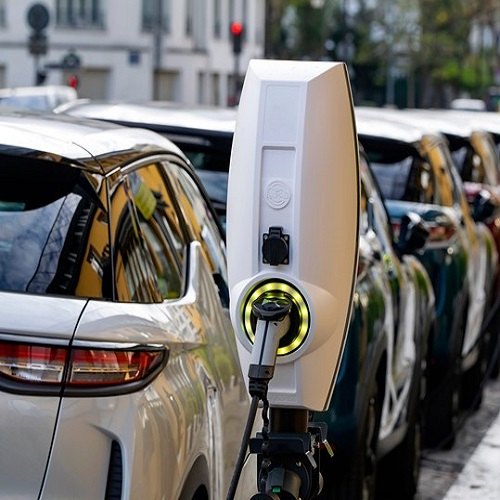While electric vehicle (EV) sales globally are rapidly rising, efforts by carmakers to decarbonise their supply chains is lagging behind, a Greenpeace report has found.
This year, Japan’s Suzuki received the lowest score, followed by China’s Great Wall Motor and Japanese firm Toyota. China’s largest automaker, SAIC, had the highest volume of EV sales, but took just third place in the ranking due to its slow progress on supply chain decarbonisation. In 2022, three in every 10 vehicles sold by SAIC were EVs.
Chongqing-based Changan and Great Wall Motor ranked 12th and 14th respectively due to poor supply chain decarbonisation, despite their relatively high proportion of zero-emission vehicle sales.
“Neither automaker has issued adequate commitments to reduce emissions from production and materials,” the charity said.
The report also singled out efforts by Great Wall Motor and Hyundai-Kia to grow their SUV sales – SUVs are worsening climate risks due to their relatively high steel consumption and low fuel efficiency.
Despite rapid growth in EV sales, combustion engine vehicles continue to dominate the global automotive market. The world’s 15 largest traditional automakers sold 3.3 million EVs in 2022, compared to 55.5 million combustion engine vehicles.
Ada Kong, Greenpeace East Asia’s deputy programme director, said: “Unfortunately, automaking giants like Toyota, Volkswagen and Hyundai aren’t reducing their emissions as quickly as many people believe.
“Leading automakers need to accelerate the shift away from fossil fuels, rather than boasting about their minimal EV sales share.”
Mercedes-Benz and BMW received the top scores in this year’s ranking, but both continue to sell more combustion engine vehicles than is compatible with limiting the global average temperature increase to 1.5˚C.
Greenpeace urged carmakers to adopt ambitious zero-emission vehicle transition strategies worldwide and end the sale of combustion engine vehicles in Europe by 2028, and before 2030 in the US, China, Korea and Japan.
“Ultimately, we need traditional automakers to dramatically speed up their adoption of electric vehicles,” Kong added. “Brands like Toyota and Hyundai face a very real market threat from all-electric vehicle-makers like Tesla and BYD, but in the face of evolving technology, they’re dragging their feet.”
The EU recently launched a probe into state subsidies that could have allowed China to flood the European market with cheap EVs at the expense of domestic manufacturers.
The European Commission said it had gathered ‘sufficient evidence’ that the imports posed an economic threat to the bloc, including evidence of loans at favourable rates, tax exemptions and components bought very cheaply. The findings led the body to consider imposing tariffs on Chinese car manufacturers above the standard 10 per cent EU rate.
Source: E&T










